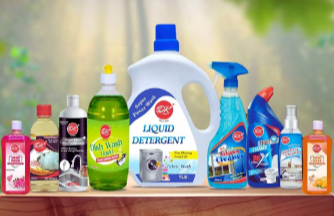
Introduction
Aqueous Cleaners Are ________ Parts Cleaning Agents. are hailed as transformative solutions in parts cleaning. With their eco-friendly nature and powerful cleaning capabilities, they have become indispensable in various industries. Let’s delve into why aqueous cleaners are considered essential parts cleaning agents and how they revolutionize the cleaning process.
Understanding Aqueous Cleaners Are ________ Parts Cleaning Agents.
Aqueous Cleaners Are ________ Parts Cleaning Agents. also known as water-based cleaners, are formulations designed to clean parts and surfaces using water as the primary solvent. These cleaners are formulated with a blend of surfactants, detergents, and other additives to effectively remove contaminants such as oils, greases, and dirt from different surfaces.
Benefits of Aqueous Cleaners
Environmentally Friendly: Unlike solvent-based cleaners, aqueous cleaners are biodegradable and less harmful to the environment, making them a preferred choice for eco-conscious industries.
Safety: Aqueous cleaners are non-flammable and have low volatility, reducing the risk of fire hazards and ensuring a safer working environment for personnel.
Cost-Effective: With the ability to be recycled and reused, aqueous cleaners offer long-term cost savings compared to solvent-based alternatives.
Versatility: Aqueous cleaners are suitable for a wide range of materials including metals, plastics, ceramics, and composites, making them versatile solutions for various cleaning applications.
Superior Cleaning Performance
Aqueous cleaners excel in removing stubborn contaminants without compromising on cleaning efficacy. Their ability to penetrate and emulsify oils and greases makes them ideal for precision cleaning of intricate parts and components. Moreover, aqueous cleaners can be customized to meet specific cleaning requirements, ensuring optimal results for different industries.
Applications of Aqueous Cleaners
Automotive Industry: Aqueous cleaners are widely used for degreasing and cleaning automotive parts such as engines, transmissions, and brake components, ensuring optimal performance and reliability.
Aerospace Industry: In the aerospace sector, aqueous cleaners play a critical role in maintaining the cleanliness of aircraft components, ensuring compliance with stringent quality and safety standards.
Manufacturing Sector: From metal fabrication to electronics assembly, aqueous cleaners are integral to the manufacturing process, facilitating efficient cleaning of parts and equipment.
See Also Unveiling the Mystery: Solving the Equation X2-11X+28=0
Conclusion
In conclusion, Aqueous Cleaners Are ________ Parts Cleaning Agents. stand out as indispensable parts cleaning agents, offering a combination of environmental sustainability, safety, cost-effectiveness, and superior cleaning performance. With their versatility and effectiveness, they continue to drive innovation and efficiency across various industries, setting new standards in parts cleaning practices. Embrace the power of aqueous cleaners and elevate your cleaning processes to new heights of excellence.
FAQs
Q1: Are aqueous cleaners safe to use on sensitive materials?
A1: Yes, aqueous cleaners are formulated to be safe on a wide range of materials including metals, plastics, ceramics, and composites. However, it’s always advisable to perform a compatibility test on a small area before full-scale application.
Q2: How do aqueous cleaners compare to solvent-based cleaners in terms of performance?
A2: Aqueous cleaners offer comparable, if not superior, cleaning performance to solvent-based cleaners. They effectively remove oils, greases, and other contaminants without the health and environmental risks associated with solvent-based alternatives.
Q3: Can aqueous cleaners be recycled and reused?
A3: Yes, many aqueous cleaners can be recycled and reused, contributing to cost savings and environmental sustainability. Proper filtration and maintenance of cleaning systems are essential to ensure optimal performance and longevity of aqueous cleaners.
Q4: Are aqueous cleaners suitable for use in ultrasonic cleaning systems?
A4: Absolutely. Aqueous cleaners are compatible with ultrasonic cleaning technology and can enhance the cleaning efficiency of ultrasonic systems, particularly for removing stubborn contaminants from intricate parts and components.
Q5: How do I determine the right aqueous cleaner for my specific cleaning application?
A5: Choosing the right aqueous cleaner depends on factors such as the type of contaminants to be removed, the material of the parts being cleaned, and any specific industry regulations or standards that need to be met. Consulting with a cleaning expert or supplier can help you select the most suitable aqueous cleaner for your needs.
Q6: Are aqueous cleaners environmentally friendly?
A6: Yes, one of the key advantages of aqueous cleaners is their eco-friendly nature. They are biodegradable and have low VOC (Volatile Organic Compounds) emissions, making them a sustainable choice for parts cleaning applications.
Q7: Can aqueous cleaners be used in automated parts cleaning systems?
A7: Absolutely. Aqueous cleaners are compatible with automated cleaning systems, including spray washers, immersion tanks, and conveyorized cleaning lines. Their versatility and effectiveness make them ideal for integration into various automated cleaning processes.
